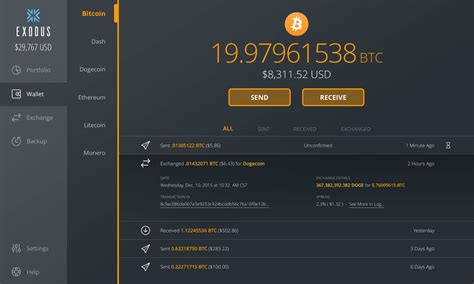Ethereum: Separating Fact from Fiction – Understanding Wallets and Private Keys
As the world of cryptocurrency continues to evolve, it’s not uncommon for beginners to have questions about managing their digital assets. A common misconception is that you only need to store your funds in a single wallet and its associated private key. However, this simplification overlooks the complexity of Ethereum’s underlying technology.
In this article, we’ll dive into the world of wallets and private keys, examining what they actually are, how they’re used, and why it’s important to understand their role in securing your digital assets.
What is a Wallet?
A wallet is a software program or hardware device that stores and manages your cryptocurrency assets. It typically consists of:
- Private Key: A unique code that unlocks the wallet and gives you access to your funds.
- Public address: A unique string of characters (also known as an “address”) that can be used to receive funds.
Can I use just a single address and private key?
While it may seem like a simple solution, using just a single address and private key for all transactions is not recommended. Here’s why:
- Security risks

: If someone gets their hands on your private key, they have access to all your funds. This is known as “private key theft” or “key theft.”
- Reentrancy attacks
: If you use a single address, it can be vulnerable to reentrancy attacks, which allow attackers to repeatedly invoke transactions to the same public address without getting paid.
- Centralized control: Using just a single address and private key creates a central point of control for your funds. This makes it easier for malicious actors to tamper with or exploit your assets.
What is the role of a wallet manager?
A wallet manager (also known as a “wallet provider”) acts as an intermediary between you, the user, and the underlying blockchain network. They perform tasks such as:
- Key management: Managing private keys, creating new ones, and storing them securely.
- Address mapping: Creating unique addresses from public keys.
- Transaction validation: Verifying transactions on the blockchain network.
What about seed phrases or mnemonic codes?
Seed phrases or mnemonic codes are not directly related to wallets or private keys. They are used for:
- Key recovery: In case you lose access to your private key, a seed phrase can be used to recover it.
- Organization and Storage: Seed phrases can be used to securely store multiple private keys.
Conclusion
In summary, while it may seem simple to use just a single address and private key for all transactions, this approach is neither safe nor reliable. A wallet manager provides an additional layer of security and control by managing your private keys, creating unique addresses, and validating transactions on the blockchain network. If you’re interested in learning more about Ethereum and cryptocurrency wallets, we recommend exploring the following resources:
- Ethereum.org: The official website for Ethereum offers a comprehensive section on wallets and private keys.
- Cryptocurrency Forums: Online communities like Reddit’s r/CryptoCurrency can provide valuable insight from experienced users.
By understanding the complexities of wallets and private keys, you’ll be better equipped to manage your digital assets safely and securely.
Deixe um comentário